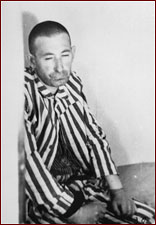
|

|
The United States produces about one billion pounds of phosgene gas a year for use in manufacturing plastics and pesticides. Yet phosgene causes lung irritation and fluid build-up and can making breathing difficult if not impossible. To assess the risks to factory workers and those living nearby, the Environmental Protection Agency thought of using Nazi data on phosgene-gas experiments, but decided it was immoral. As one writer commented, "Is it fair to those people currently being exposed to the chemical to pretend that applicable data do not exist? Can the ethical questions be so compelling that we ignore information that might conceivably reduce the amount of human suffering and misery currently being experienced?" [49] "We cannot imply any approval of the methods. Nor, however, should we let the inhumanity of the experiments blind us to the possibility that some good may be salvaged from the ashes."—Kristine Moe, journalist [49] 
References 48. Katz, Jay. "Abuse of Human Beings for the Sake of Science." In Caplan, p. 264. 49. Moe, p. 7. 50. Siegel, p. 1. 51. Cohen, p. 20. Photo: National Archives, courtesy of USHMM Photo Archives The Director's Story | Timeline of Nazi Abuses Results of Death-Camp Experiments: Should They Be Used? Exposing Flawed Science | Resources Transcript | Site Map | Holocaust on Trial Home Editor's Picks | Previous Sites | Join Us/E-mail | TV/Web Schedule About NOVA | Teachers | Site Map | Shop | Jobs | Search | To print PBS Online | NOVA Online | WGBH © | Updated October 2000 |
